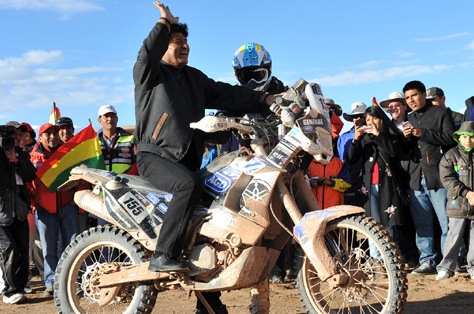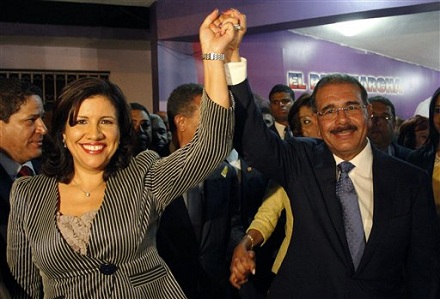
No one should be surprised that Danilo Medina has easily coasted to reelection in the Dominican Republic’s general election on Sunday.![]()
As the incumbent president in a country that registered 7% GDP growth last year, Medina is one of the most popular leaders in Latin America or, indeed, even the world. Preliminary results gave Medina over 60% of the vote in Sunday’s general election, with just around 36% for center-right challenger Luis Abinader, a businessman who has never held elective office.
But the real victory for Medina came last year, in June 2015, when he successfully pushed to amend the constitution to allow Dominican presidents to run for reelection.
His predecessor, Leonel Fernández, won reelection in 2008 only after the Dominican Congreso Nacional (National Congress) passed a similar law. It later revoked that law in 2010, however, once again forbidding consecutive reelection.
Fernández, who was first elected to the presidency in 1996, had long been the driving force of the governing Partido de la Liberación Dominicana (PLD, Dominican Liberation Party), which has now extended a period of rule that began with Fernández’s return to the presidency in 2004. When Medina narrowly won the 2012 election, he did so in large part because of Fernández’s enduring popularity. Medina’s running mate, Margarita Cedeño, is Fernández’s wife, and it was widely assumed that Fernández would try for a fourth term again in 2016. Fernández opposed last year’s constitutional changes, alternatively arguing that they should be subject to popular referendum.
* * * * *
RELATED: Race, politics looms behind
potential deportation of Haitian Dominicans
* * * * *
Medina’s push, coupled with a reform to harmonize legislative and presidential voting in the same general election, effectively sidelined the former president, cementing Medina as the central figure in Dominican politics and paving the way forward for his successful reelection bid this year. Continue reading Medina headed for easy reelection in Dominican Republic





